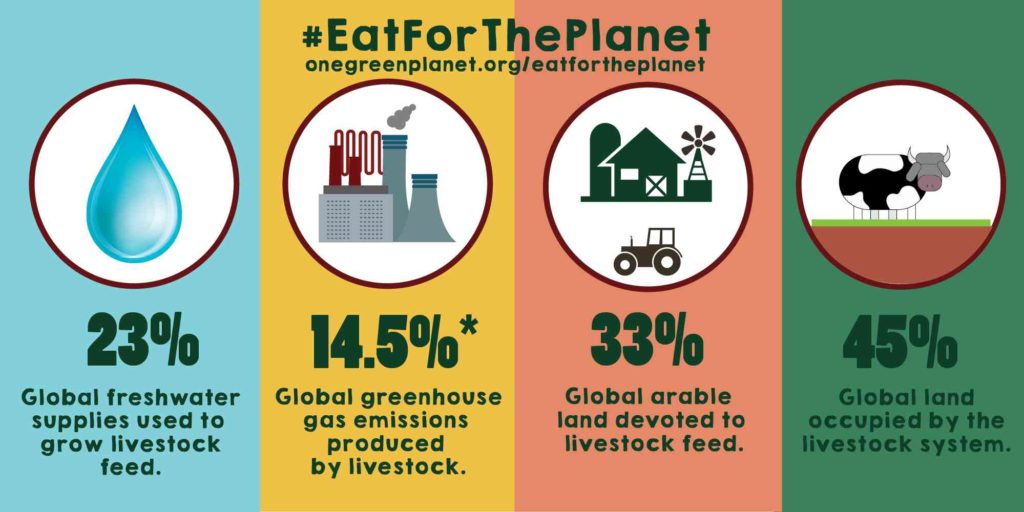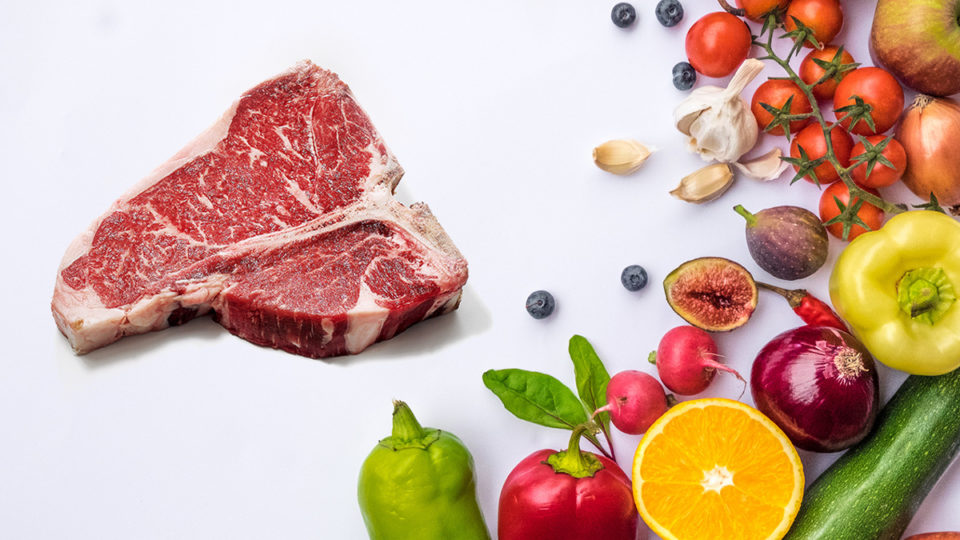By Nina Chatzistergiou,
The vegan diet is the right way to do the least possible disaster on our planet, it’s inevitably true.
The United Nations and several other organizations have published reports that show that raising animals for human consumption is the leading contributor to greenhouse gas emissions. In fact, they show that the animal products industry contributes more to climate change than all airplanes, cars, trucks and all other forms of transportation on the planet combined.
Environmental pollution
Feeding huge amounts of grain and water to farm animals and then killing, processing, transporting and preserving the meat is extremely energy-intensive. Also, a huge amount of carbon dioxide is stored in the trees and is released during the destruction of the huge acres of forest to create pastures and to cultivate food for livestock. In addition to that, animal manure releases large amounts of carbon dioxide.
Irrational use of water
Raising animals requires huge amounts of water. The production of just 1 kilo of meat requires an average of 11,000 liters of water. 1 liter of cow’s milk requires 2,000 to 4,000 liters of water. If you choose to live as a vegan, you save over 5 tons of water per year! In other words, eating meat equals consuming more water than letting water in your shower run 24 times a day, 365 days a year! And today, when water is so precious, it is a waste of time.
The billions of animals that are raised and killed for human consumption use most of the water and eat most of the crops and, of course, they excrete them in the feces and urine. In the US alone, farmed animals produce 130 times more feces than the entire human population of the earth: 40,000 kilograms of feces per second! These feces contaminate the water, destroy the arable land and pollute the air.

Air pollution
Livestock farms produce a stench that creates great inconvenience and potential danger to residents miles away. An article in the New York Times reads: “Near industrial pig farms across the country, people say their health depends on how the wind blows. If the wind blows from the industries, it brings persistent headaches and young and old people are familiar with inhalers, nebulizers, and oxygen cylinders”.
Destruction of Forests & Trees
Many of us recycle paper because we want to save trees. But the number one reason for cutting down trees, including the destruction of rainforests, is deforestation to feed farm animals. If you become vegan, you save 4,000m2 of trees every year! According to a 2006 United Nations report, “The total area occupied by grazing is equivalent to 26% of the planet’s land area, excluding ice-covered areas.”
In addition to that, the area devoted to fodder cultivation amounts to 33% of the total area ofcultivated land. “All animals (cows, pigs, chickens, and other farm animals) make up 70% of the total agricultural land and 30% of the planet’s land surface.”
In Latin America, where the most intense deforestation occurs, pastures cover about 80% of the former Amazon rainforest area, and fodder crops cover a large part of the rest.




